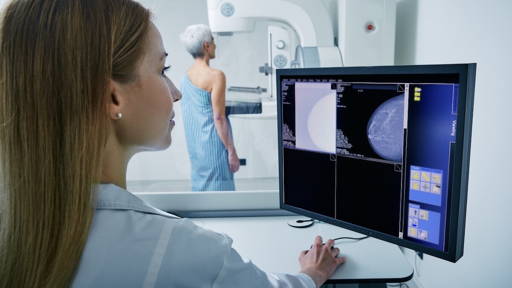An ENT specialist and researcher at Emory University School of Medicine in Georgia (US) is developing an AI application that can easily detect laryngeal cancer at an early stage by listening to a patient's voice.
Anthony Law developed a deep learning model that analyzes voice changes with the aim of detecting laryngeal cancer at an early stage. The seed for his innovation was planted when he contracted COVID and spoke to his mother. She immediately recognized from her son's voice that something was wrong with him. That experience gave ENT specialist and researcher Law the idea of developing technology that would make it possible to diagnose medical conditions using voice analysis.
Dysphonia
As an ENT specialist, Law was already aware that changes in patients' voices can indicate the first signs of throat cancer. However, it is much more difficult for general practitioners to make this diagnosis because this so-called dysphonia is also characteristic of other conditions. “For a trained laryngologist, it is clear when a voice sounds worrying. But for a general practitioner, it's like looking for a needle in a haystack,” says Law.
That is why he developed an AI model that uses a series of voice exercises to detect abnormalities that may indicate a tumor in the larynx. The software is based on a neural network trained on a dataset of over 15,000 voice recordings. The model currently achieves an accuracy of approximately 93 percent.
User-friendly app
To facilitate its use in practice, the algorithm was integrated into a user-friendly mobile app. Within five minutes, doctors can record and analyze a patient's voice and immediately get an indication of the risk of laryngeal cancer. The app fits into the workflow of busy clinics and simultaneously collects valuable data for further research.
The next step is a randomized clinical trial comparing general practices with and without the app. The goal is to gain insight into the effect on referral times, tumor size at diagnosis, and possibly even patient survival rates.
Voice diagnostics
Voice diagnostics is a relatively new development in healthcare. Last year, during the ICT&health World Conference, pulmonologist Sami Simons (MUMC+) gave a number of presentations on the development of an app that can predict an impending COPD attack using voice analysis. The app reminds patients daily to record a text or sound. By linking changes in voice tone to symptoms, machine learning can be used to detect an attack at an early stage.
The app has already been tested in an initial pilot involving 74 patients. The patients submitted daily voice recordings via the app for three months, along with lists of symptoms. The app collects data and learns to recognize patterns that indicate an exacerbation.









